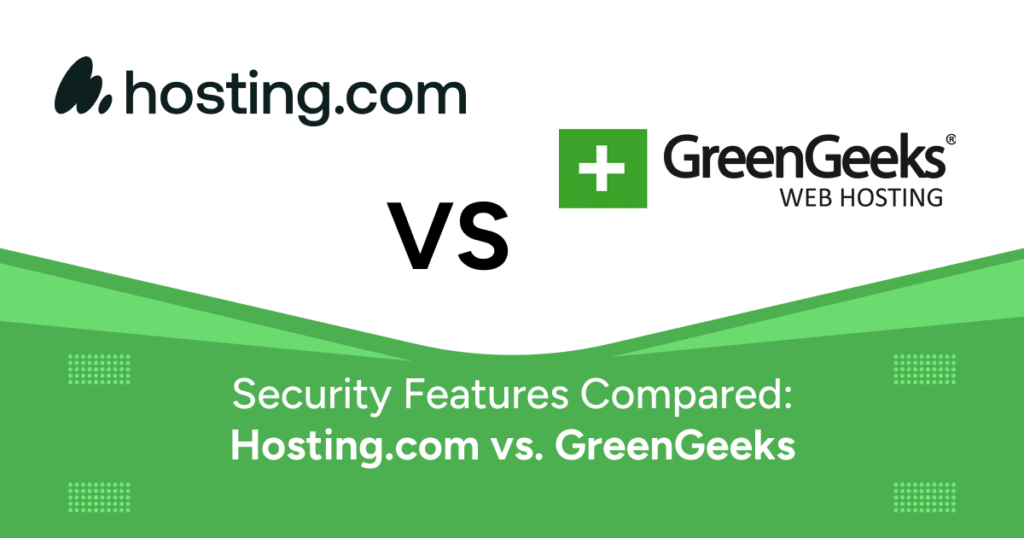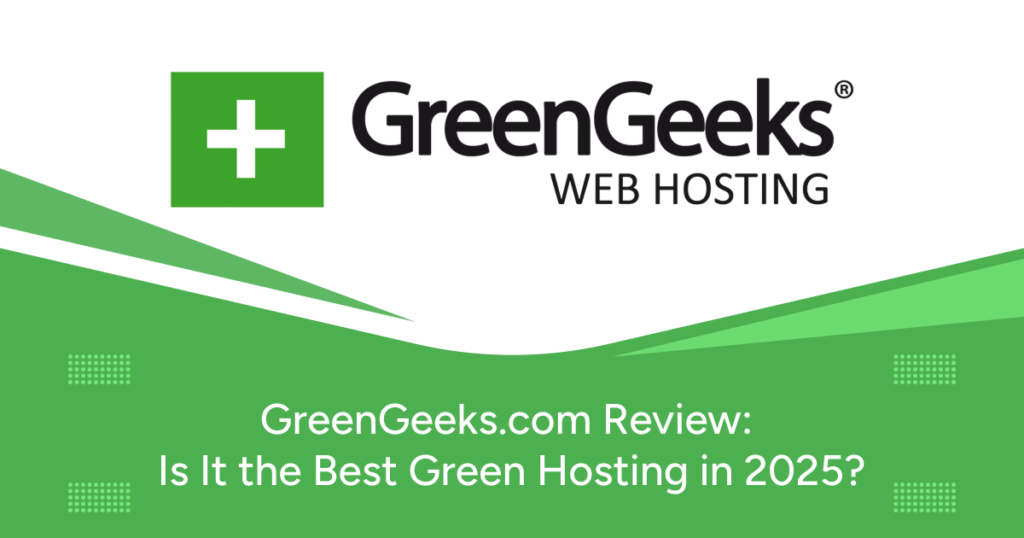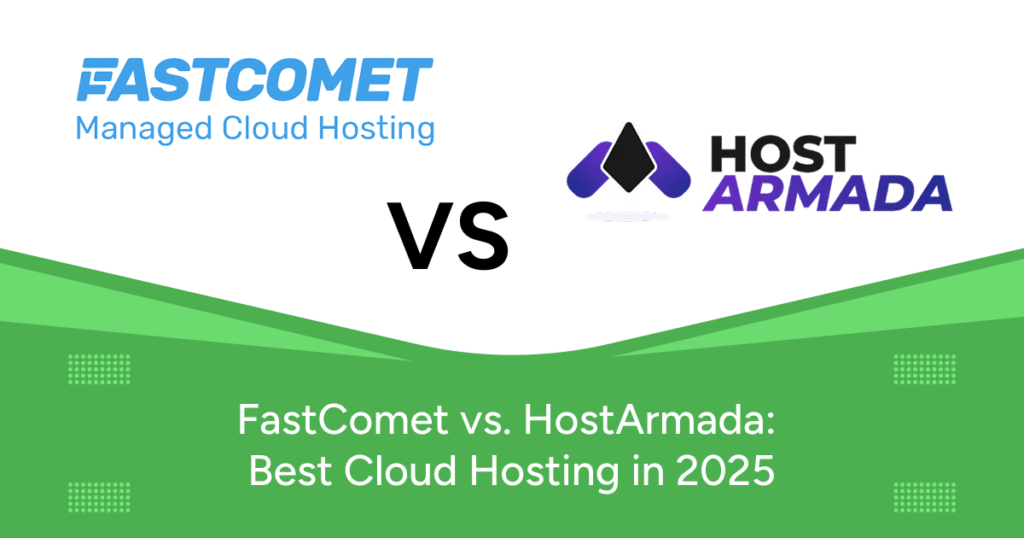Cybersecurity has evolved into a foundational requirement for any online presence. Whether you are a solo entrepreneur running a blog or a growing enterprise managing sensitive customer data, the level of security your hosting provider offers can directly impact your business reputation, legal compliance, and customer trust.
In this detailed comparison, we break down the security features of Hosting.com vs. GreenGeeks, helping you make an informed decision on which provider is better suited to protect your website in 2025.
1. Why Hosting Security Matters More Than Ever
The number of cyberattacks has been growing consistently each year, targeting small blogs, eCommerce platforms, and even government sites. Malware injections, phishing scams, ransomware, and DDoS attacks are no longer rare—they are expected.
Web hosting companies play a crucial role in safeguarding websites at the server level. Even if you use secure plugins and strong passwords, your hosting provider’s infrastructure determines how well your site resists intrusions.
That’s why a comparison like Hosting.com vs. GreenGeeks is necessary—not based on just pricing and performance, but on the quality of built-in security protocols and preventative technology.
2. Hosting.com: Security Built for Scale and Compliance
Founded over two decades ago, Hosting.com has always targeted enterprise clients. This long-standing reputation isn’t just based on infrastructure but also on its commitment to robust cybersecurity practices tailored for high-demand industries.
a. Enterprise-Level Monitoring and Prevention
Hosting.com employs a 24/7 Security Operations Center (SOC), staffed with trained cybersecurity professionals. This team monitors servers and network layers for unusual behavior and attacks.
b. Hardware Firewalls and Web Application Firewall (WAF)
Hosting.com uses a two-layer firewall structure. A hardware firewall protects the data center level, while a web application firewall (WAF) defends the software layer, such as your website’s CMS (like WordPress).
c. DDoS Protection and IP Reputation Control
Hosting.com mitigates DDoS attacks using a global traffic scrubbing system that filters requests and blocks IPs with poor reputations or repetitive access patterns.
d. Data Encryption and SSL Integration
All Hosting.com plans include SSL certificates powered by top-tier authorities and support for TLS 1.3, the latest encryption protocol.
e. Two-Factor Authentication and Role-Based Access
User accounts are protected by mandatory 2FA, and admins can assign permissions by role, reducing insider threat risk.
f. Encrypted Daily Backups and Rapid Recovery
Hosting.com performs encrypted daily backups stored offsite with quick restoration options.
g. Regulatory Compliance (HIPAA, PCI, GDPR)
Hosting.com offers infrastructure ready for compliance with GDPR, PCI-DSS, and HIPAA.
3. GreenGeeks: Eco-Friendly Yet Secure Hosting
While GreenGeeks is known for eco-conscious hosting, it also offers strong security that caters to individuals and small businesses.
a. Continuous Server Monitoring and Real-Time Scanning
GreenGeeks uses real-time malware scanning powered by adaptive machine learning and manual oversight.
b. Secure vFS Account Isolation
GreenGeeks uses secure virtualized file systems (vFS) to isolate accounts on shared servers.
c. Hardened Hosting Environment
They run custom security rules and updated configurations for PHP and Apache to reduce exploitable vectors.
d. Free Let’s Encrypt SSL Certificates
GreenGeeks includes free Let’s Encrypt SSL for all hosting plans, ensuring HTTPS compliance.
e. Nightly Data Backups and One-Click Restore
Nightly backups are retained for 24 hours and can be restored via cPanel.
f. Email Security with SPF, DKIM, and DMARC
- SPF (Sender Policy Framework)
- DKIM (DomainKeys Identified Mail)
- DMARC (Domain-based Message Authentication)
g. Optional Two-Factor Authentication
2FA is optional but available in cPanel for users who want added login security.
4. Comparison Table: Hosting.com vs. GreenGeeks Security
| Feature | Hosting.com | GreenGeeks |
|---|---|---|
| 24/7 Monitoring | Yes – Security Operations Center | Yes – Automated & Manual |
| DDoS Mitigation | Advanced Filtering & Traffic Scrubbing | Limited, Basic Level Protection |
| Web Application Firewall (WAF) | Yes – Enterprise-grade | Yes – ModSecurity-based |
| Account Isolation | VPS/Dedicated Plan Isolation | Yes – Secure vFS for Shared Hosting |
| Malware Scanning | Real-time + Heuristic Analysis | Real-time + Signature Detection |
| SSL Certificate | Free SSL + TLS 1.3 | Free Let’s Encrypt SSL |
| Email Security | Encrypted IMAP/SMTP | SPF, DKIM, DMARC Enabled |
| Backups | Daily, Encrypted, Offsite | Nightly, Local, 24-hour Retention |
| Two-Factor Authentication (2FA) | Mandatory | Optional |
| Compliance Support | HIPAA, PCI-DSS, GDPR | GDPR |
5. Which Hosting Provider Offers Better Security?
Hosting.com provides an enterprise-level security framework suitable for high-risk websites. If you’re in a regulated industry, Hosting.com is clearly the better choice.
GreenGeeks balances solid security with affordability and eco-friendliness. It’s ideal for bloggers, freelancers, and small businesses.
- Hosting.com is better for scalability, regulatory compliance, and advanced server protections.
- GreenGeeks is ideal for sustainability-conscious users seeking reliable protection for standard websites.
Conclusion
Security should not be an afterthought in 2025. With data breaches becoming increasingly common, your hosting provider should serve as the first line of defense.
When choosing between Hosting.com and GreenGeeks, prioritize based on your project size, data sensitivity, and compliance needs. Hosting.com gives you enterprise-level confidence, while GreenGeeks offers solid security within a green and affordable package.



